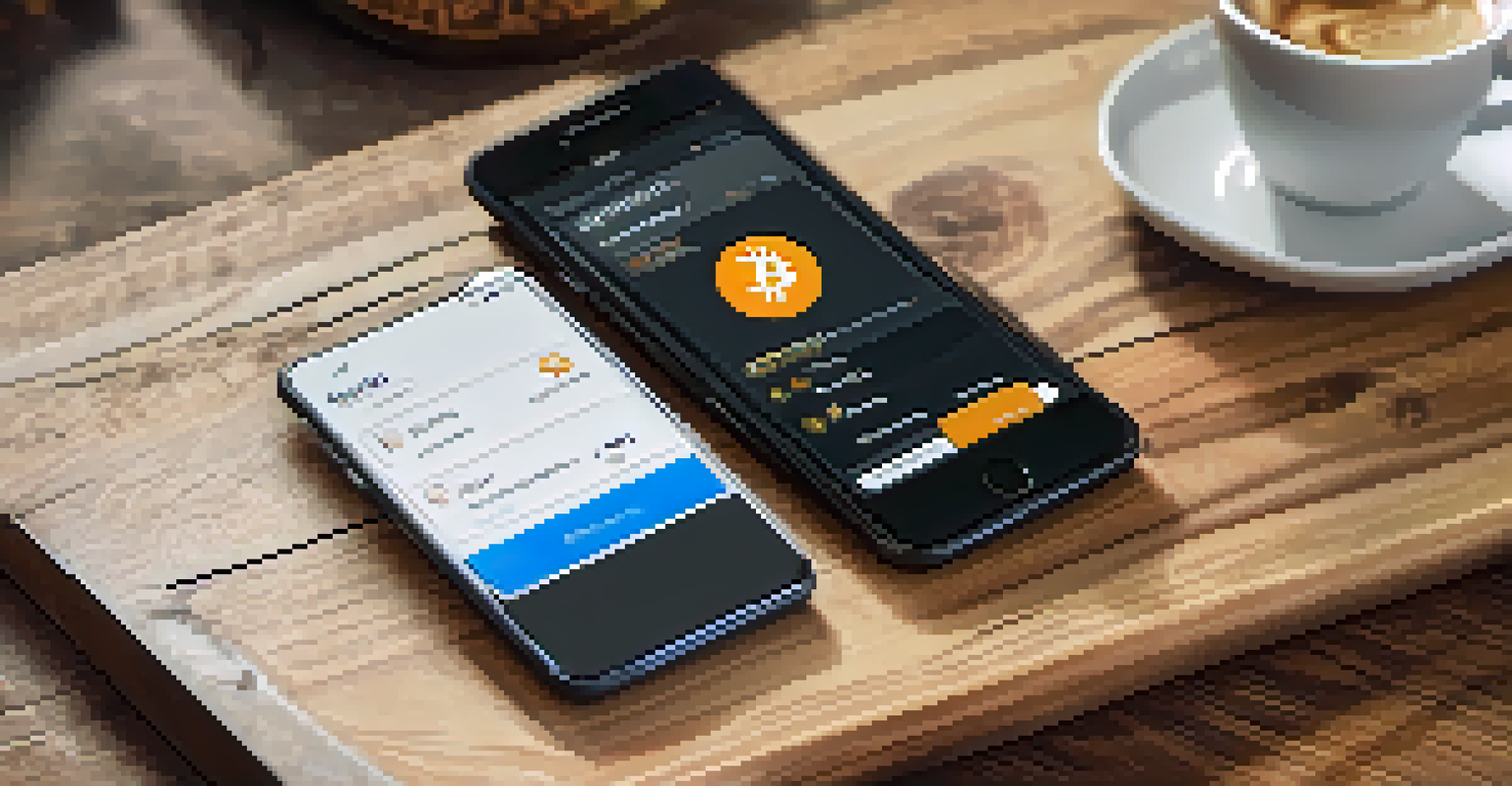Bitcoin as a Tool for Economic Equality among the Unbanked

Understanding the Unbanked Population Globally
The term 'unbanked' refers to individuals who do not have access to traditional banking services, often due to geographical, economic, or social barriers. According to recent estimates, around 1.7 billion adults worldwide fall into this category. This exclusion from financial systems can perpetuate poverty and limit economic opportunities, creating a cycle that's hard to break.
Bitcoin is the beginning of something great: a currency without a government, something necessary and imperative.
Many unbanked individuals rely on cash for transactions, which can be both inconvenient and unsafe. Without access to banking services, they miss out on savings accounts, loans, and other financial products that could help improve their financial situation. This lack of access not only affects their personal finances but also limits overall economic growth in their communities.
Bitcoin, as a decentralized digital currency, presents a unique opportunity for these individuals. By providing an alternative to traditional banking, Bitcoin can help bridge the gap for those who have been excluded from the financial system, empowering them to take control of their economic futures.
Bitcoin’s Accessibility and Low Barriers to Entry
One of the most appealing aspects of Bitcoin is its accessibility. Unlike traditional banks, which often require extensive documentation and a stable income, anyone with a smartphone or internet connection can start using Bitcoin. This low barrier to entry is particularly beneficial for those living in remote areas without access to banking infrastructure.

With just a basic understanding of technology, individuals can create a Bitcoin wallet and begin transacting almost immediately. This ease of use means that even those who are not financially literate can engage in the economy without needing to navigate complex banking systems. It's a bit like having a passport to a global economy, opening doors that were previously closed.
Bitcoin as a Banking Alternative
Bitcoin provides unbanked individuals with accessible financial tools, allowing them to engage in the economy without relying on traditional banking services.
Moreover, the transaction fees associated with Bitcoin are often much lower than those of traditional banks, particularly for cross-border transactions. This means that unbanked individuals can send and receive money without the burden of high fees, making it a cost-effective solution for many.
Empowering Individuals with Financial Autonomy
Bitcoin offers individuals a sense of financial autonomy that traditional banking often cannot provide. With Bitcoin, users have complete control over their funds and can transact without relying on a third party. This ownership is empowering, especially for those who have historically been marginalized within traditional financial systems.
The rise of Bitcoin means that there is no longer a need for a middleman in financial transactions.
Imagine being able to send money to a family member in another country without worrying about exchange rates or banking fees. Bitcoin facilitates this kind of financial freedom, allowing users to manage their wealth in a way that suits them. This autonomy can lead to greater financial literacy as individuals learn to navigate the world of cryptocurrencies.
In essence, Bitcoin is not just a financial tool; it’s a means of reclaiming power. For the unbanked, it can serve as a stepping stone toward greater economic participation and independence.
Fostering Community through Bitcoin Networks
The rise of Bitcoin has given birth to numerous community-driven initiatives aimed at educating and supporting unbanked populations. Local Bitcoin meetups and online forums provide spaces for individuals to learn about cryptocurrency and share best practices. These grassroots efforts help demystify Bitcoin and create a supportive network for those looking to dive in.
Communities that adopt Bitcoin often find themselves more connected, with members trading goods and services directly using cryptocurrency. This local economy can thrive outside traditional financial systems, enabling individuals to support one another and foster economic resilience. It’s a powerful reminder of how technology can bring people together.
Empowerment Through Financial Autonomy
With Bitcoin, users gain control over their funds and can transact freely, fostering greater financial independence and literacy.
As more individuals join these Bitcoin networks, they build a sense of belonging and shared purpose. This communal approach not only enhances financial literacy but also encourages collective growth, ultimately contributing to greater economic equality.
Bitcoin’s Role in Disaster Relief and Financial Crises
In times of crisis, whether due to natural disasters or economic turmoil, Bitcoin has proven to be a lifeline for many unbanked individuals. Traditional financial systems can falter or become inaccessible during such events, leaving vulnerable populations stranded. In contrast, Bitcoin remains operational as long as there is internet access, providing a reliable means of financial support.
For instance, during crises like hurricanes or political upheaval, people have turned to Bitcoin to receive funds from family members or humanitarian organizations. This immediacy can be life-saving, allowing individuals to access resources when they need them most. It illustrates how Bitcoin can serve as a bridge in dire situations.
Moreover, the transparency of blockchain technology ensures that funds can be tracked, providing reassurance to donors and recipients alike. This level of accountability can foster trust, encouraging more people to contribute to relief efforts using Bitcoin.
Challenges and Misconceptions Surrounding Bitcoin
Despite its potential, Bitcoin is not without challenges. Misconceptions about its volatility and association with illicit activities can deter some individuals from embracing it. It's important to address these concerns and provide accurate information to help unbanked populations make informed decisions.
Bitcoin's price fluctuations can indeed be daunting; however, many view it as a long-term investment rather than a quick fix. Education about market trends and strategies can help users mitigate risks and understand that volatility is a common characteristic of emerging technologies. Think of it like learning to ride a bike—there will be wobbles, but with practice, it gets easier.
Community Support via Bitcoin Networks
Local initiatives and online forums create supportive environments for unbanked individuals, enhancing financial education and fostering community resilience.
Additionally, it's crucial to advocate for regulatory frameworks that protect and educate users. By fostering a safe and informed environment, we can help alleviate fears and encourage more individuals to explore Bitcoin as a viable financial option.
The Future of Bitcoin and Economic Equality
As we look to the future, the potential for Bitcoin to promote economic equality among the unbanked is immense. Continued advancements in technology, combined with a growing acceptance of cryptocurrencies, could lead to more people gaining access to financial tools that were once out of reach. This shift could fundamentally change the landscape of global finance.
Moreover, as more organizations recognize the power of Bitcoin for social impact, we may see increased efforts to integrate it into existing financial systems. Initiatives that focus on education, support, and infrastructure can help accelerate this process, ensuring that the benefits of Bitcoin are felt by those who need it most.

In conclusion, Bitcoin has the potential to be a game-changer for economic equality. By empowering the unbanked with accessible financial tools, we can help pave the way for a more inclusive and equitable financial future.